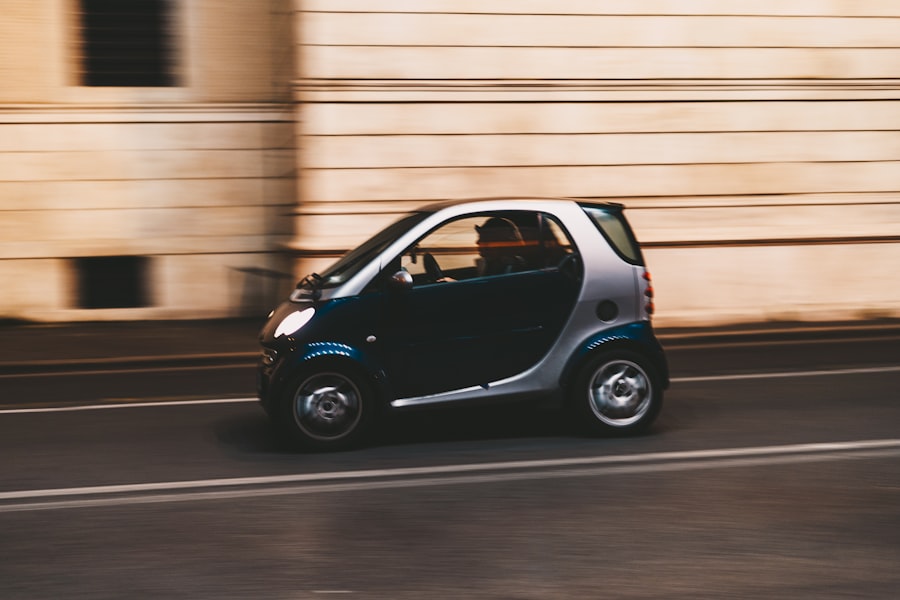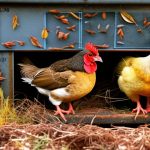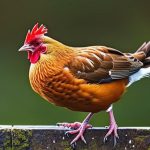Raccoons are known for their intelligence and adaptability in finding food sources, with chickens often becoming targets. These nocturnal mammals are adept climbers, enabling them to access chicken coops easily. Raccoons not only kill chickens but can also damage coops, steal eggs, and consume feed.
They are potential carriers of diseases like rabies and roundworm, which can affect both chickens and humans. Chicken owners must recognize the threat raccoons pose and implement protective measures for their flocks. The intelligence, keen sense of smell, and manual dexterity of raccoons make them challenging opponents for chicken keepers.
They can manipulate latches, force open doors, and burrow beneath fences to enter coops. Their sharp claws and teeth make them effective predators capable of overpowering chickens. As opportunistic feeders, raccoons are attracted to the readily available food sources that chicken coops provide.
Understanding these characteristics and behaviors is crucial for developing effective strategies to safeguard chickens from raccoon predation and ensure the flock’s overall health and safety.
Table of Contents
- 1 Securing the chicken coop: Tips for keeping raccoons out
- 2 Using deterrents: Natural methods to repel raccoons
- 3 Protecting the chicken feed: Preventing raccoons from accessing food sources
- 4 Monitoring the surroundings: Keeping an eye out for raccoon activity
- 5 Seeking professional help: When to call in pest control
- 6 Maintaining a raccoon-free environment for chickens
- 7 FAQs
- 7.1 What are some effective ways to keep raccoons away from chickens?
- 7.2 Why are raccoons a threat to chickens?
- 7.3 What are some signs that raccoons are targeting my chickens?
- 7.4 Are there any natural deterrents for keeping raccoons away from chickens?
- 7.5 What should I do if I suspect raccoons are targeting my chickens?
Key Takeaways
- Raccoons pose a threat to chickens as they are known to attack and kill them.
- Securing the chicken coop with strong locks and barriers can help keep raccoons out.
- Using natural deterrents such as predator urine or motion-activated lights can help repel raccoons.
- Protecting chicken feed by using secure containers and not leaving food out can prevent raccoons from accessing it.
- Monitoring the surroundings for signs of raccoon activity, such as tracks or droppings, can help prevent attacks on chickens.
- Calling in pest control may be necessary if raccoon activity is persistent and difficult to manage.
- Maintaining a raccoon-free environment is crucial for the safety and well-being of chickens.
Securing the chicken coop: Tips for keeping raccoons out
Building a Raccoon-Proof Coop
One of the most important steps in securing the coop is to ensure that it is built with sturdy materials and has no weak points that raccoons can exploit. This includes using heavy-duty wire mesh to cover windows and vents, as well as reinforcing doors and latches to prevent raccoons from gaining entry.
Regular Maintenance and Inspection
Additionally, it is important to regularly inspect the coop for any signs of damage or wear and tear, as even small openings can provide an opportunity for raccoons to infiltrate.
Deterrents and Obstacles
Another effective way to secure the chicken coop is to install motion-activated lights and alarms. Raccoons are nocturnal animals, so bright lights and loud noises can deter them from approaching the coop. Motion-activated lights can startle raccoons and make them think twice about attempting to access the coop, while alarms can alert chicken owners to potential threats. Furthermore, placing obstacles such as rocks or gravel around the perimeter of the coop can make it more difficult for raccoons to approach undetected. By implementing these measures, chicken owners can significantly reduce the risk of raccoon attacks and create a safer environment for their flock.
Using deterrents: Natural methods to repel raccoons

In addition to securing the chicken coop, there are several natural deterrents that can be used to repel raccoons and discourage them from targeting the flock. One effective method is to use strong-smelling substances such as ammonia or vinegar around the perimeter of the coop. Raccoons have a keen sense of smell, and these odors can be highly unpleasant and off-putting to them.
By regularly applying these substances, chicken owners can create a barrier that deters raccoons from approaching the coop. Another natural deterrent is the use of predator urine or feces. Raccoons are wary of potential predators, so the scent of urine or feces from animals such as coyotes or wolves can make them think twice about entering the area.
These products can be purchased from outdoor supply stores and strategically placed around the coop to create a sense of danger for raccoons. Additionally, planting strong-smelling herbs such as mint or lavender around the coop can help mask the scent of chickens and make it less appealing to raccoons. By using these natural methods, chicken owners can effectively repel raccoons and reduce the risk of attacks on their flock.
Protecting the chicken feed: Preventing raccoons from accessing food sources
Raccoons are notorious for their ability to raid chicken coops in search of food, making it essential for chicken owners to protect their feed from these crafty predators. One effective way to prevent raccoons from accessing chicken feed is to use secure containers that are resistant to tampering. This includes using metal or heavy-duty plastic bins with tight-fitting lids that cannot be easily opened by raccoons.
Additionally, it is important to store feed in a secure location that is not easily accessible to raccoons, such as a locked shed or storage area. Another important step in protecting chicken feed is to avoid leaving food out overnight. Raccoons are most active during the night, so leaving feed unattended can attract them to the coop.
By feeding chickens during the day and removing any leftover feed before nightfall, chicken owners can reduce the risk of attracting raccoons to the area. Furthermore, it is important to clean up any spilled feed or scraps around the coop, as these can also attract raccoons. By taking these precautions, chicken owners can effectively protect their feed from raccoon raids and minimize the risk of attracting these predators to the coop.
Monitoring the surroundings: Keeping an eye out for raccoon activity
Regularly monitoring the surroundings is essential for detecting any signs of raccoon activity near the chicken coop. This includes looking for tracks, droppings, or other evidence of raccoon presence in the area. By staying vigilant and being aware of any potential threats, chicken owners can take proactive measures to prevent raccoons from targeting their flock.
Additionally, it is important to inspect the perimeter of the coop for any signs of damage or weak points that could provide an entry point for raccoons. Another important aspect of monitoring the surroundings is observing the behavior of chickens. Chickens are often sensitive to potential threats, so paying attention to their behavior can provide valuable insight into whether raccoons are present in the area.
Signs such as increased agitation or distress among the flock can indicate that raccoons may be nearby. By staying attuned to these cues, chicken owners can take swift action to protect their flock from potential harm. Regular monitoring of the surroundings is crucial for maintaining a safe and secure environment for chickens and preventing raccoon attacks.
Seeking professional help: When to call in pest control

Conducting Thorough Inspections and Implementing Solutions
Pest control professionals can conduct thorough inspections of the property to identify potential entry points and implement measures such as trapping and relocation to remove raccoons from the area. They can also provide valuable advice on long-term strategies for preventing raccoon infestations and protecting chicken coops.
Long-term Strategies for Prevention
This may include recommendations for securing the coop, implementing deterrents, and creating a less attractive environment for raccoons. By working with pest control experts, chicken owners can gain a better understanding of how to protect their flock from raccoon threats.
Gaining Peace of Mind
By enlisting the help of pest control professionals, chicken owners can gain peace of mind knowing that their flock is protected from potential threats posed by raccoons. Knowing when to call in pest control is essential for addressing persistent raccoon issues and maintaining a safe environment for chickens.
Maintaining a raccoon-free environment for chickens
In conclusion, protecting chickens from raccoon threats requires a proactive approach that includes securing the coop, using natural deterrents, protecting feed sources, monitoring surroundings, and seeking professional help when necessary. By understanding the threat that raccoons pose and implementing effective strategies for keeping them at bay, chicken owners can create a safe and secure environment for their flock. It is essential to regularly inspect the coop for any signs of damage or weak points that could provide an entry point for raccoons, as well as implementing measures such as motion-activated lights and alarms to deter them from approaching.
Furthermore, using natural deterrents such as strong-smelling substances and predator urine can effectively repel raccoons and reduce the risk of attacks on chickens. Protecting feed sources by using secure containers and avoiding leaving food out overnight is crucial for minimizing the risk of attracting raccoons to the coop. Regularly monitoring surroundings and observing chicken behavior can provide valuable insight into potential threats posed by raccoons.
Finally, knowing when to call in pest control is essential for addressing persistent raccoon issues and maintaining a safe environment for chickens. By taking these proactive measures, chicken owners can effectively maintain a raccoon-free environment for their flock and ensure their safety and well-being.
If you’re looking for ways to keep raccoons away from your chickens, you may want to check out this article on how quails sit on their eggs. Understanding the behavior of different poultry can help you implement effective strategies to protect your flock from predators like raccoons.
FAQs
What are some effective ways to keep raccoons away from chickens?
Some effective ways to keep raccoons away from chickens include securing the chicken coop with strong locks, installing motion-activated lights or sprinklers, using predator-proof fencing, and keeping the area around the coop clean and free of food scraps.
Why are raccoons a threat to chickens?
Raccoons are a threat to chickens because they are skilled predators that can easily break into chicken coops and kill or injure chickens. They are also known to steal eggs and can spread diseases to the flock.
What are some signs that raccoons are targeting my chickens?
Some signs that raccoons are targeting your chickens include finding chicken feathers or carcasses near the coop, seeing raccoon tracks or droppings around the coop, and noticing damage to the coop or fencing.
Are there any natural deterrents for keeping raccoons away from chickens?
Some natural deterrents for keeping raccoons away from chickens include using strong-smelling substances like ammonia or predator urine, planting thorny bushes or plants around the coop, and keeping a guard animal such as a dog or a rooster.
What should I do if I suspect raccoons are targeting my chickens?
If you suspect raccoons are targeting your chickens, it is important to take immediate action to secure the coop and protect the flock. This may involve reinforcing the coop with stronger locks, installing deterrents, and removing any potential food sources that may attract raccoons. If the problem persists, it may be necessary to seek professional help from a wildlife control expert.
Meet Walter, the feathered-friend fanatic of Florida! Nestled in the sunshine state, Walter struts through life with his feathered companions, clucking his way to happiness. With a coop that’s fancier than a five-star hotel, he’s the Don Juan of the chicken world. When he’s not teaching his hens to do the cha-cha, you’ll find him in a heated debate with his prized rooster, Sir Clucks-a-Lot. Walter’s poultry passion is no yolk; he’s the sunny-side-up guy you never knew you needed in your flock of friends!







